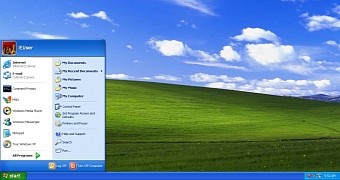Windows XP continues to be the second most-used operating system worldwide despite Microsoft’s efforts to emphasize the risks of staying with an unsupported platform, but it’s actually the success of the product the one that’s making it even more dangerous.
That’s what Sieng Chye, ESET security researcher, believes, explaining that all those who are still running Windows XP on their computers could indeed find ways to protect their data, but only until a newer operating system is deployed.
At this point, Windows XP is installed on 23 percent of the desktops worldwide, and figures are only dropping at a really slow pace, especially because the switch to another platform also requires new hardware and thus becomes a more expensive process.
At the same time, Windows 8 is still not considered the right replacement for Windows XP, with lots of users choosing to wait for Windows 9 and only then to upgrade.
Huge amount of malware because of its market share
The fact that Windows XP continues to be the second most-used operating system worldwide keeps malware designed for the OS version alive, and chances are that cybercriminals will continue relying on such malicious files to infiltrate into computers that are yet to be upgraded.
“Windows XP’s success is also its downfall in security terms. Since so many users around the world use, or have used, the system, there is a huge amount of malware targeting the OS,” ESET’s security expert said.
“Without security patches and support, the number of these that get through and affect end-users will definitely increase. Ultimately, the advice to businesses is that while there are temporary measures if you’re still running XP, these should be seen as a bridge to replacement of Windows XP, rather than a long-term solution.”
Windows 9 could help kill Windows XP
Microsoft hopes that Windows 9 could help get more people off Windows XP, and the improvements it makes to the operating system are not only supposed to achieve this goal, but also to convince more people to adopt Windows.
Windows 9, for example, is expected to restore full desktop functionality and bring back the Start menu, while also implementing a number of new features such as a PC version of Cortana and multiple desktops.
People close to the matter said at some point that Microsoft could go as far as offering Windows 9 free to Windows XP users, but this is very unlikely since an upgrade from the 13-year old OS to the new one would also require hardware upgrades.

 14 DAY TRIAL //
14 DAY TRIAL //